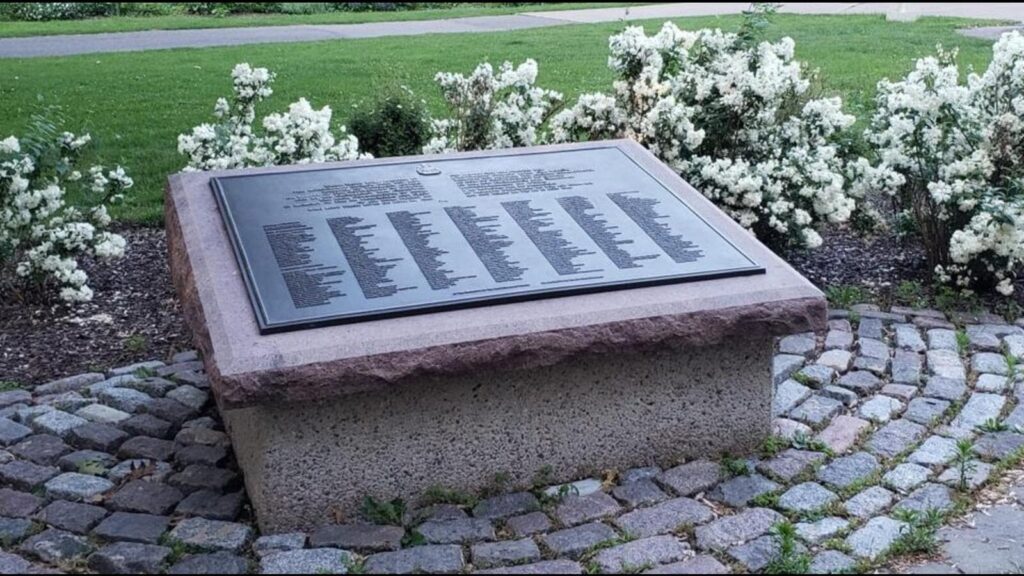TORONTO: Canadian law enforcement agencies have said their investigation into the June 23, 1985 bombing of Air India Flight 182 (Kanishka) by pro-Khalistani terrorists is “active and ongoing”.
A memorial in Ottawa, Canada, commemorating the victims of the Air India Flight 182 terrorist bombing on June 23, 1985. (Photo courtesy of the High Commission of India, Ottawa)
In a statement released Friday, Deputy Commissioner David Teboul, commander of federal police programs for the Pacific region, said, “The Air India investigation is one of the longest and certainly the most complex domestic terrorism investigations the RCMP has ever conducted. Our investigative efforts remain active.”
He also called on Canadians to visit four memorials to the victims in Toronto, Montreal, Vancouver and Ottawa. “Over the years, attending the memorials has been an opportunity to pay tribute to the victims and their families, and to show gratitude to all those who went to great lengths to respond to and investigate the tragedy,” he said.
“Time has not diminished the impact of the largest terrorism-related loss of life to have engulfed and affected Canadians in our nation’s history. The trauma caused by the bombings of June 23, 1985 will reverberate for generations,” he added.
The terrorist attack killed 329 people, while a bomb aimed at another aircraft killed two baggage handlers at Narita Airport in Japan.
Gary Bass, who worked in various capacities on the Royal Canadian Mounted Police (RCMP) investigation from 1994 to 2011, told the Hindustan Times in June 2017 that progress was still possible, despite decades having passed.
“There’s always hope that at some point their conscience will kick in. There are many cases where people have been threatened or feel threatened, and for a variety of reasons, such as after the threat has passed or the person who made the threat is no longer in the area, some people feel able to come forward and tell police what they know,” Bass said.
As the Special Investigations Unit’s investigation continues, to date only one person has been convicted in connection with the tragedy: bomb maker Inderjit Singh Rayat. He was released from a rehabilitation facility by the Parole Board of Canada in February 2017 and allowed to return to his family home.
Investigators have developed leads on at least three people, including a man known as Mr. X, who spent a week with Mr. Rayatt while he built the bomb used in the attack.
In a 2005 ruling, British Columbia Supreme Court Justice IB Josephson noted that it was “generally accepted by both the prosecution and defence that the violent separatist Khalistani movement was the “motivation” for the attacks and that Talwinder Singh Parmar “was the leader of the conspiracy to commit these crimes”.
Despite these facts being reiterated in two separate investigations conducted by former judge John Major and current Canadian Permanent Representative to the United Nations Bob Rae, the separatist group Sikhs for Justice (SFJ) has offered C$5 million in “pro-Khalistani” funding for another commission of inquiry to look into the discredited conspiracy theory that India was involved in the incident.

